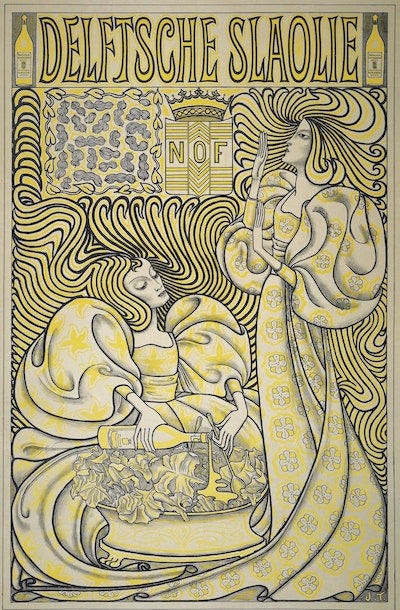In order to Keep a Muse...
... you must first offer her food.
Growing up gorging myself on the works of other writers, one of my favourite appearances was that of The Muse. The greats spoke of it haltingly, afraid to pin it down and well aware of how weak-kneed it left them, how much power it held over them, like a drug over an addict (or indeed, like a book over a reader).
Most people hopscotched their way around defining it.
The Greeks called it “daemons”. Vincent van Gogh called it “a terrible lucidity” during which “the picture comes to me like a dream”. The Romans called it “genius”: not ‘Albert Einstein’ genius, but ‘mysterious being’ genius, a Dobby the house elf that cleans up your sentences and writes new ideas for you when you’re sitting in a trance, whiskey glass precariously perched on your knee.
My vision of The Muse changed depending on what age I was, and what my current obsession was. For a while, it seemed to me like a wild horse, an ephemeral Zhar-ptitsa, unbridled and unrideable. That morphed into the vision of a Greek goddess, fragile like Hestia, but with Artemis’ grace and Aphrodite’s cunning.
Somewhere along the way, I began to think of The Muse in capital letters, in a mixture of awe and fear, want and dislike. I thought it would either indulge my dreams of a writing career or snap its head clean off.
I wondered how, when The Muse finally came to visit, I might entice it to stay a while, recline on the couch, hang around while I made something of the gift it brought me.
My solution to this was much like my solution to most things I’m curious about: standing on the shoulders of giants. Or at least, on their advice.
American musician Tom Waits was all for yelling at The Muse to go away and come back at a more convenient time.
Once, when he was caught in traffic, Waits heard the tiny trace of a beautiful melody but had no way to pin it down: no tape recorder, no pen, no surprise lipstick from underneath the car seat. He began to panic, as we all do when we feel like something’s slipping away from us, but then he stopped. Then he yelled,
“Excuse me, can you not see that I’m driving? If you’re serious about wanting to exist, come back and see me in the studio. I spend six hours a day there, you know where to find me, at my piano. Otherwise, go bother somebody else. Go bother Leonard Cohen.”
Elizabeth Gilbert advocates for treating the muse as a friend:
You, the artist, you’re not the puppet of the piano, you’re not the puppet of the muse, but you’re not its master, either. It’s a relationship, it’s a conversation, and all it wants is to be treated with respect and dignity — and it will return ten thousand times over.
But the idea I found most kinship with was this: inspiration strikes when it does, but we can always be ready for it.
Ray Bradbury, who I need not introduce if you’ve read Fahrenheit 451, thought along these same lines:
In order to Keep a Muse, you must first offer her food.
That seems like straightforward advice, advice that we wouldn’t need if you were entertaining a friend or a particularly nervous dog. But how do we feed something that isn’t there?
We collect food, for starters. To do that, we follow Tchaikovsky’s advice:
We must always work and a self-respecting artist must not fold his hands on the pretext that he is not in the mood. If we wait for the mood, without endeavouring to meet it halfway, we easily become indolent and apathetic. We must be patient, and believe that inspiration will come to those who can master their disinclination.
Or, like the wonderful Chilean American writer Isabel Allende simply puts it:
“Show up, show up, show up, and after a while the muse shows up, too.”
Like a hunter-gatherer searching for sustenance, we set out to collect impressions, perceptions, experiences, and events. We forage for sights, sounds and smells, locking them away in our minds. We create a recipe that only we know how, combining and recombining intentionally and methodically.
Then, like a grandparent eagerly awaiting their grandchildren, we keep the food ready on the table that is the subconscious. This is the sustenance, the simple bread and butter on which The Muse grows from an ephemeral mist to a strong-boned idea. This is your part of the partnership fulfilled so The Muse can extend, to you, a hand of friendship and trust.



Loved it!